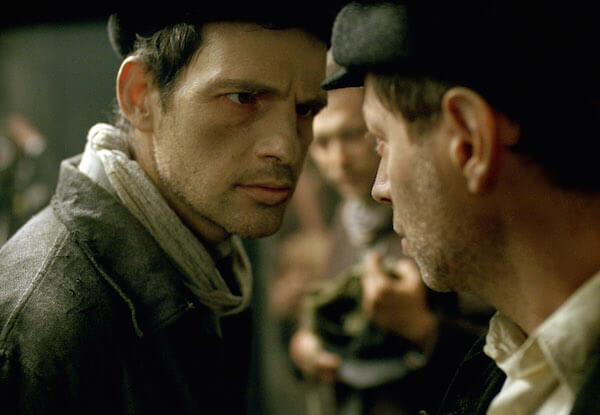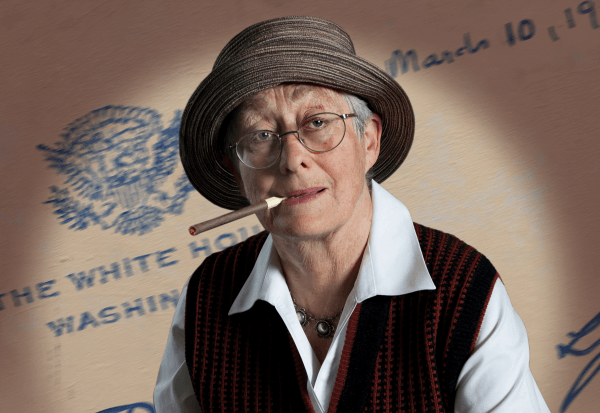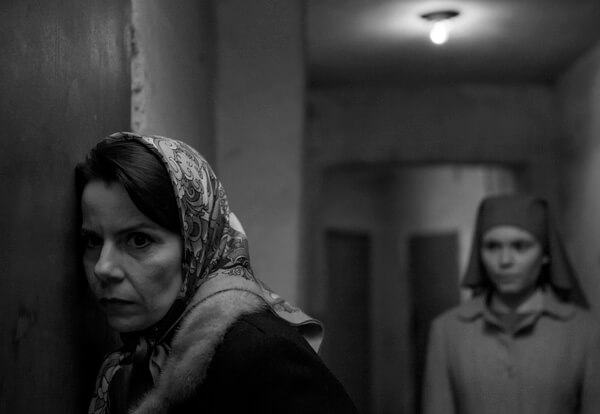A movie poster from the golden age of Cambodian cinema. | ICARUS FILMS
Davy Chou’s “Golden Slumbers” begins with several stories about the thrill of low-budget filmmaking. Despite the Cambodian setting, we could be watching a documentary on the local equivalents of Edgar G. Ulmer or Roger Corman. That setting is crucial — if “Golden Slumbers” is to be believed, Cambodian cinema had its golden age between 1960 and 1975. One must take Chou’s word for it because the Khmer Rouge destroyed the vast majority of the films produced during that period, as well as executing most of the country’s directors and actors.
Chou’s reliance on present-day testimonial from survivors of the period evokes Claude Lanzmann’s “Shoah,” although he also uses a lot of soundtrack music from ‘60s films; an hour passes before we see the first bit of archival footage from ‘70s Phnom Penh. I’m not sure if Chou is consciously drawing on Lanzmann’s aesthetic or simply doing the best he can with limited material.
Weirdly, “Golden Slumbers” sometimes suggests a synthesis of Lanzmann and Ken Burns, as Chou is also fond of zooming into still photos. Even so, there’s a palpable sense of loss to his film missing from most of Burns’ work. This feeling may stem from the fact that Chou’s grandfather, Van Chann, was a Cambodian film producer.
Davy Chou excavates the ruins of Cambodian cinema’s golden age
At its peak, Phnom Penh had 30 movie theaters. “Golden Slumbers” takes us to three of them. One is now a karaoke bar, another a restaurant, the third a squat holding 116 households. Chou interviews directors Ly Bun Yim, Ly You Sreang, and Yvon Hem, as well as actor Dy Saveth. At first, their stories are triumphant, as they talk about introducing innovative special effects to Cambodian cinema. But given the arc of Cambodian history, they turn harrowing. One filmmaker barely escaped the end of Pol Pot’s rule with his life. Sent to the countryside to live in a village of 1,000 people, his fellow villagers keep getting sent to the forest for execution. Fortunately, the regime fell before he faced this fate, but he was one of only 180 people in his village to survive.
Even those lucky enough to emigrate faced severe hardships. One filmmaker escaped to France by a roundabout route. His wife assumed he was dead and moved on with her life. He went from fame and fortune in Cambodia to living in a tiny apartment in Paris and working in a car factory. Still, he saved up enough money to buy a car and memorized the Paris street grid, becoming a taxi driver. In time, he was a successful businessman, owning three taxi fleets, but he remained homesick for Cambodia and returned to his homeland permanently in 2007.
What does this all mean for Chou’s own generation, which has never had the chance to actually see films from Cambodian cinema’s zenith? “Golden Slumbers” seems a little evasive on this point. For some, these films are cult objects. An arts collective, of which Chou is a member, is shown recreating an infamous nude scene from one film, “The Sacred Pond.” Chou interviews two cinephiles who can recite detailed plot descriptions from memory, recalling the “book people” from Ray Bradbury’s “Fahrenheit 451,” but they’re middle-aged men. Does Cambodia produce much contemporary cinema? Aside from documentarian Rithy Panh, it doesn’t have much of a presence of the world festival circuit at the moment.
If there are parallels between what happened during the period “Golden Slumbers” tries to document and other moments in world history, the closest one may be Iran just after the Islamic revolution. (It’s fitting that the Asia Society’s series of ‘60s and ‘70s Iranian cinema begins two days after “Golden Slumbers” opens.) Most films made before the revolution are still banned in present-day Iran, and arcane censorship restrictions have prevented Abbas Kiarostami’s “Case No.1, Case No. 2” from making it to either of the filmmaker’s retrospectives held in New York in the past 10 years. Still, the Iranian regime didn’t kill filmmakers and actors, even if it has arrested them. “Golden Slumbers” is a lament for the destruction of a nation’s art. It’s also mourns the death of much of the nation itself.



































